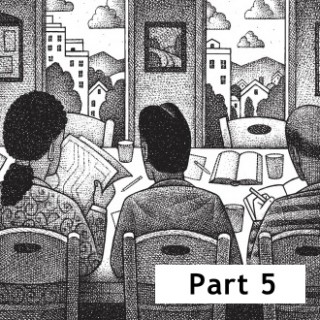Two years ago we asked 25 individuals who have served both as professional and citizen planners for their thoughts on a series of five short questions — and published their replies in the Planning Commissioners Journal. We received great feedback on what we titled “Sitting on Both Sides of the Table” — as a result, we decided to ask another seven individuals who have also sat on both sides of the table for their thoughts. We hope you find what they have to say equally interesting.
For very short bios of the seven planners, see the sidebar to your left.
Are there any suggestions you have for strengthening the working relationship between staff planners and planning commissioners?
Merrie Stillpass:
I think a good staff report is very valuable to help the commissioners see what the specific issues are, and to help frame the discussion and provide a basis for questions.
I also believe in developing a training program to bring some level of professionalism to new members. Often times comments become subjective based on their personal orientation/interests, not really considering what is best for the community.
Pierre Martinez:
Be professional, friendly, and courteous and encourage communication. Be clear when asking questions and try to minimize surprises.
Anna Choudhuri
If your planning commission typically has issues on complicated or larger projects, try to provide staff reports and background information extra days in advance than the norm in your jurisdiction. Remember, preparing the staff report may be YOUR full-time job, but our time on a planning commission is in addition to our own careers and family life.
Sometimes the only time I have to read staff reports is close to midnight, after my children are in bed and household chores have been completed; I may have to pull an all-nighter to read your report and do my due diligence and I still have to go into work the next day! So you (as staff) may not receive my comments prior to the public hearing.
Giving a planning commission member the extra time on complicated projects avoids the surprises planning commissioners sometimes spring on staff from the dais, at the time of a public hearing!
Tony Robbins:
Know each other, your likes and dislikes, backgrounds, etc. We’ll be spending a lot of time together, it helps to have a better understanding of your colleagues.
Steve Ostaseski
Hold work sessions and conversations with the commissioners about the community. Not a lecture, but a conversation; and share lunch with a commissioner.
John Morgan:
The basic disconnect I’ve found in my local planning commission as a commissioner, and in my county planning commission as a staff member, is the sense of “this is how we’ve always done it, and that’s good enough.” That rut is what causes breakdowns in communication and leads to disinterest from commissioners and a general lack of extra effort from planners.
I would recommend breaking from the generic agenda occasionally to have special issue-specific meetings to encourage real discussion on current challenges in the community. It could be an opportunity for staff to educate the commissioners on the latest planning practices, and remind commissioners that they really are important partners in the process — and that they do have an influential role worth engaging in.
Janet Agnoletti:
As much as we all value professionalism in any field, I think we sometimes undervalue the personal meeting between planner and commissioner that can bring a sense of rapport, good will, and enhanced understanding not attainable in a public meeting.
A comfortable one-on-one meeting can set the stage for questions to emerge from a shy commissioner or for impromptu training from a planner. A personal meeting can also help build trust where political divisiveness has occurred in the community and staff in general is regarded warily.
Bringing about real understanding sometimes is greater than the sum of professional conduct and discussing business competently — it includes getting to know each other. Ask for the meeting.
